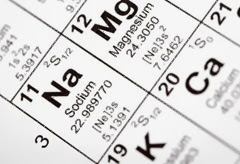The plant require inorganic elements in large amounts or in traces for several functions of the plant body.
The important functions are
The important functions are
- They serve as constitute of protoplast and cell wall.
- Minerals ions of the vacuole sap influence the OP of cell.
- Some mineral elements serve as activators or co factors of enzymes.

- Inorganic elements enter into the synthesis of several biologically important molecules.
- Nitrogen is an important constituent of proteins, amino acids, RNA, DNA, vitamins, hormones, cytochromes, chlorophylls, co enzymes etc.
- Phosphorus is the structural constituent of nucleic acids, nucleotides.
- Magnesium is the metallic part of chlorophyll.
- Calcium is a major components of calcium pectate of the middle lamella.
- Sulphur is an important constituent of certain essential amino acids such as cysteine, cystine and methionine.
- Potassium ions play an active role in the opening and closing of stomata.
- Magnesium is an integral part of chloroplast and maintains ribosome structure.
- Boron is required in pollen germination
- Molybdenum helps in ion absorption and translocation.

